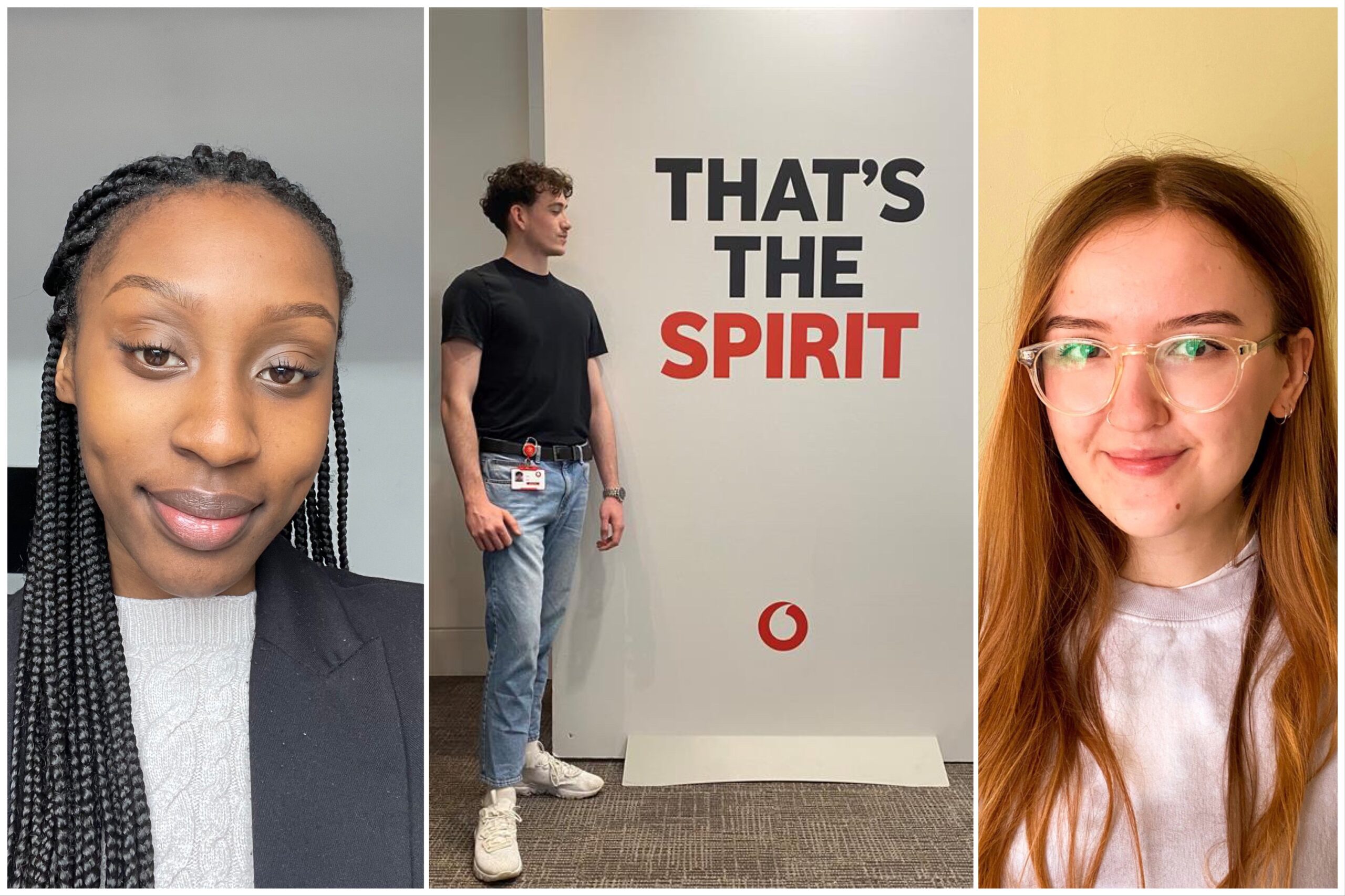We ask recruitment and hiring specialists which online upskilling programmes are worth your time and money, and how to frame the skills you already have.
When preparing a CV for an entry level job, it can be difficult to fill it with information that will make a prospective employer sit up and take notice. Careers experts say that thinking outside the traditional CV model can help a younger person’s resume to stand out. Successful strategies include showcasing transferable skills, taking free online courses to gain relevant expertise and highlighting feedback from teachers and other known adults from outside activities.
“If you have no experience, get creative,” advises Andrew Fennell, CEO of Standout CV, a CV advice and builder service. He adds that it’s wise to “highlight skills in software [programs] that might be used in the job and use your hobbies and interests to highlight transferable skills.”
Here are experts’ assessments of the most important skills for young people’s CVs and how best to show them on a resume.
Communication skills
Derek Bruce, head of utilities training provider Skills Training Group, says that showcasing communications skills will encourage employers to take you on, as they seek those who can “articulate ideas clearly and effectively”. He suggests taking on unpaid volunteer work, such as local community service projects. Such experiences make for prime CV material.
It's never too early to teach your kids about cash
Financial literacy is an important skill children need to learn, but what's the best way to teach them?
Teamwork
Shoshanna Davis, who founded Fairy Job Mother to help young people understand the world of work, says that employers value teamwork. Fortunately, this does not require work experience, as it is something that is developed by doing “what teens/young adults do, like participating in a sports team or club or society”.
To communicate it on a CV, though, Davis says you should focus on what you learned from your experience: “Use bullet points specifically focusing on what you did, learned and the results you achieved,” she suggests.
Technical competence
Always showcase skills on your CV that are related to the discipline you’re applying for. Bruce, at Skills Training Group, suggests trying online courses, if you haven’t already gained them through school or university work placements.
These include courses offered by Coursera, EdX, FutureLearn and Grow with Google. There are free and paid-for lessons in digital marketing, coding, and other career-relevant skills. Many of these are run by leading universities, which can help impress recruiters.
Help! My child is politically disengaged
With general elections in countries such as the UK and the US this year, encouraging young people to vote has never been more important – or harder to achieve. While there are no silver bullets, here are some ways that parents can support and nudge their teens and 20-somethings to the ballot boxes.
Victoria McLean, CEO and founder of award-winning career consultancy City CV, describes these as the “Swiss Army knives of learning – versatile and widely accepted”, and suggests that graduates start with essential soft skills like communication, time management and problem-solving. You might, for example, try the beginner Project Planning course run by Google, which is included with Coursera Plus, which costs £316 a year. For more technical skills, LinkedIn Learning’s course on how to use Microsoft Excel could be a good starting point.
These courses come with digital certificates that can be shared on your LinkedIn profile.
Leadership skills
Voluntary work or internships can help to hone these vital skills, successes which you should then mention on your CV.
Tim Mart is a qualified careers coach and founder of Know You More, a platform that connects young people with the right coach to unlock their career potential. He suggests trying his company’s free ‘Level Up’ programme that has been designed to help young adults develop personal leadership skills. “An appetite and ability to learn will always be valued in the workplace,” he says.
Why your teen's gaming habit could land them a better job
Parents often worry that their kids are spending too much time playing video games, but the latest research suggests that the skills they pick up from gaming could actually improve their employment prospects.
Attention to detail
Many employers now use automated software to do the initial sifting of CVs. Suzie Dawes, HR & People Expert at accountancy charity Caba, says that learning to write for such Applicant Tracking Software (ATS) is crucial if you want your CV to be noticed by such systems.
“To get noticed, your CV needs to reflect the keywords used in the job description, including qualifications, functional skills and [knowledge of] relevant software,” she explains.
Motivation
“If the company you’d like to work for is looking for a motivated individual, then evidence that shows you’re motivated should be at the very top of the CV,” Dawes says. You can show this by showing the courses you have done, or with volunteering or other relevant experience.
Bruce, at Skills Training Group, suggests looking through the National Careers Service’s list of free courses to find something to show motivation. These courses are free to those over 19 on low wages (you can check your eligibility online) and many are recognised by employers. Try Level 3 courses in Coding Practices if you want to go into tech jobs, for example.
Other online courses he recommends include:
- Free courses on Google Analytics if you’re interested in data and digital marketing roles.
- DataCamp to get started in data science roles – currently US$336 a year, with discounts available for university students, as well as occasional sales.
- Meta Blueprint for organic and paid social media marketing jobs. These are run by Facebook’s owner and are available for free, with an exam and certificate at the end.
Body image and social media: How to talk to your teenager
Influencers and charities are tackling unrealistic standards of beauty head-on, as teenagers grapple with impossible expectations, often to the detriment of their mental health.
Specific office skills
Shona Hamilton-Higgins, who runs Lilac HR, says that employers are looking for specific skills, and you can emphasise these on your CV rather than simply listing roles and responsibilities.
“When listing your work experiences/volunteer placements/extracurricular activities etc, you should detail the skills that you learned, rather than the tasks you performed. For example, instead of “answered telephone” you could write “developed customer service skills,” she suggests.
Personality
No one wants a CV to be wacky or tacky. Dawes, at Caba, says that you can inject personality into a CV without making it hard on the eyes. “Avoid using fancy fonts and layouts – your CV is just one of dozens of CVs. If it’s difficult to read, it’s more likely to immediately get binned,” she says.
However, Victoria McLean, founder of career consultancy City CV, says that there are other ways to stand out. “For example, you could add a section about your passions or a unique hobby that relates to the job. It’s all about showing who you are, not just what you’ve done,” she says.
Clubhouse: Great business networking tool or a lot of hot air?
It's the audio-only, invite-only app that everyone is talking about and where everyone talks. But is it just another fad or a seriously useful way to grow your business?
Time management and adaptability
It’s easy to overlook the jobs that young people have done on the way through university, but these can show prospective employers that a person is ready for the workplace. For example, if they’ve turned up on time as a babysitter, or been a valued hospitality colleague, this shows an ability to manage time.
Tim Mart, qualified careers coach and founder of Know You More, says that including feedback from mentors or managers can add “extra sparkle” to your CV, because it is good to “read about you in someone else’s words and not just yours.”
Educational achievements
While showing skills and talents on your CV is important, you must remember to add the educational qualifications that employers expect as well. These may include GCSE maths and English, a relevant degree or A-Level, or a vocational qualification, depending on the nature of the job.
“Clearly list educational achievements, including any courses or certifications that are relevant to the job they are applying for,” says Vit Koval, founder of global remote work group Globy.
Stay up to date with the latest news from Vodafone by following us on LinkedIn and Twitter/X, as well as signing up for News Centre website notifications.
Get organised with these life-hacking apps
When the summer holidays end it can be hard getting back into a routine at school and work - but these apps could help you hit the ground running.
![Young woman waiting for job interview indoors [Adobe Stock] stock image of a young woman waiting for job interview indoors](https://www.vodafone.co.uk/newscentre/app/uploads/2024/06/2-Young-woman-waiting-for-job-interview-indoorsAdobe-Stock.jpg)



![Neurodiversity illustration[Adobe Stock]](https://www.vodafone.co.uk/newscentre/app/uploads/2024/03/Neurodiversity-illustrationAdobe-Stock.jpg)





